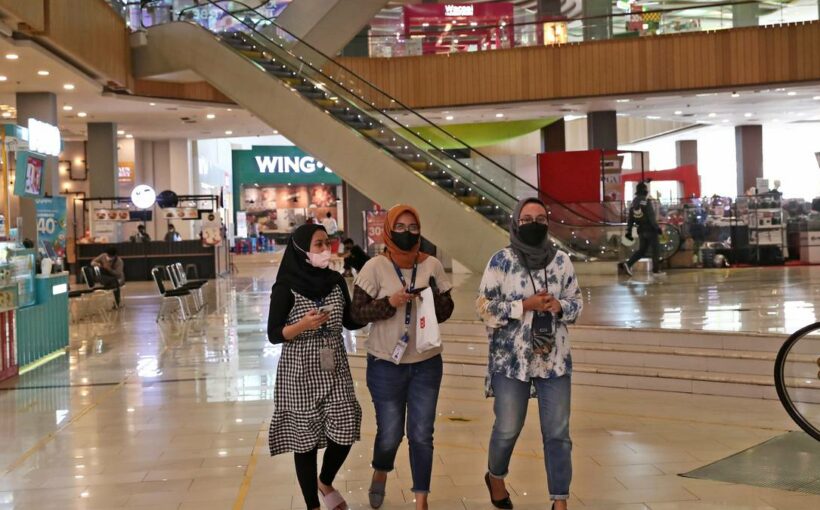In an effort to curb a potential explosion of Covid-19 cases during the festive period, the Indonesian government has banned civil servants and workers in state-owned and private companies from taking leave between December 24 to January 2.
Previously, authorities had cancelled the December 24, pre-Christmas collective leave day and shortened the Christmas break, which meant only Christmas Day would count as a public holiday.
“We hope that we can manage Christmas and the New Year well, because almost all epidemiologists are afraid that what triggers a third wave could be during Christmas and New Year,” President Joko Widodo said on October 28, when he cancelled the country’s Christmas Eve holiday.
The harsh new restrictions enforced by the Minister of Home Affairs, Tito Karnavian, also announced that restrictions will also be placed on school activities, as well as the restriction of arts, culture and sporting activities.
Public squares will also be closed from December 31, 2021, to January 1, 2020, in order to prevent the virus from spreading.
Although Indonesia’s population is 87 per cent Islamic, Christmas is still widely celebrated by the 10 per cent of Indonesians who identify as Christians (roughly 10 million people).
According to the Strait Times, 4.2 million civil servants, two million workers in the state-owned companies and many workers in the private sector will be impacted, with workers urged to postpone taking their annual leave.
The official order to ban workers from taking leave has drawn complaints from Indonesia’s minority Christian population but the country’s fear around large outbreaks stemming from large holidays is potentially warranted.
Indonesia’s deadly second wave surge in cases occurred just two weeks after the Islamic Hari Raya Aidilfitri celebrations, despite warnings from the government for people to limit their movement.
“I understand we all have missed our families and relatives in these moments, especially the upcoming Lebaran,” President Widodo said at the time.
“But let’s prioritise our communal safety by not returning to our home towns. Let’s pass Ramadan with an effort to break the chain of the pandemic for the safety of our entire families and relatives, ourselves, and the whole society.”
Despite this, the mass movement helped the highly transmissible Delta variant seed itself into communities.
First detected in the small Kudus regency in Indonesia’s largest island of Java, cases increased from 137 on May 14 to more than 1000 just 17 days later. By June 24, this number exponentially increased again to 12,985.
Infections also swiftly spread to other parts of Indonesia, and by July, the country was declared the epicentre of Asia’s Covid-19 pandemic.
After experiencing a devastating outbreak in July and August, Indonesian authorities are no doubt eager to avoid a similar situation. Between June and August, it’s believed 82,000 Indonesians died from Covid, with the current Covid death toll sitting at 144,000.
At the time, Nikkei Asia reported that the country’s per capita death toll had surpassed India’s, while daily infections hit a pandemic high of 56,757 new cases on July 15.
However, experts estimated the number was likely higher. Speaking to Aljazeera, Udayana University professor and senior virologist, Gusti Ngurah Mahardika, said this was because the government used rapid antigen tests, instead of pfanonolymerase chain reaction or PCR tests which are more reliant and superior when detecting for Covid.
More than two months later, Indonesia is hoping for a slight return to normal, with Bali reopening for tourists and the country’s seven-day case average dropping down to 10.
However, the memory of the nations deadly Covid crisis no doubt still lingers.
“The central government is traumatised by what happened in Indonesia so they are now doing things in a very careful manner,” said Septian Hartono, a medical scientist and data co-ordinator who spoke to Aljazeera in September.
“But if they lift all the restrictions, the rate will go up again.”
Source: Read Full Article

/cloudfront-ap-southeast-2.images.arcpublishing.com/nzme/S3V2ULIRG5Q6AVRPXOYEQN6NSI.jpg)
/cloudfront-ap-southeast-2.images.arcpublishing.com/nzme/P5FGAH5YTG7IEGQQ3JJ2QYY6OY.jpg)